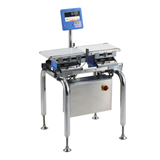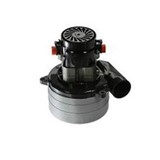The financial shocks caused large income losses, a contraction in economic activity, and of course, pain and suffering for many who did not have the means to absorb the shock.
Fortunately, the crisis was short lived and many economies – particularly South Korea and some of the ASEAN states – were able to get back on their feet quickly. In addition, Australia, despite our strong concentration of exports in the region, was able to avoid any serious adverse effect on domestic economic activity, thanks to a floating exchange rate (which absorbed most of the adjustment instead of the whole economy contracting) and the skill of our then Reserve Bank Governor Ian MacFarlane in managing the crisis.
Having watched several Central Banks ‘panic’ in similar situations, MacFarlane held his nerve on interest rates in anticipation that the exchange rate would do its job and that the neighbouring Asian economies had some resilience.
The Reserve Bank was also helped by the fact that it’s then Deputy, Stephen Grenville, had served as a diplomat in Jakarta and knew the regional economies pretty well. Greenville showed strong character and a good grasp of local conditions when he disagreed with the IMF’s economic analysis of the Indonesian economy (and their advice to the Indonesian Government) and hence won Australia a lot friends in the region.
Australia was also well served by its exporter community. Australian businesses, on the whole, stuck to their Asian partners and customers ‘through thick and through thin’ and hence were not accused of ‘carpet bagging’ and shut out of business deals when the Asian economies recovered.
What does the picture look like ten years after the Thai baht plummeted? The short answer is that we’ve never been so enmeshed with the region in terms of trade with strong growth in exports overall as well as new free trade agreements (FTAs) being forged across the region. FTAs have been signed with Singapore and Thailand and there are ongoing negotiations with Malaysia, Japan and China as well with a regional ASEAN plus CER (i.e. Australian and New Zealand) also in the offing.
Australia has a ‘joint feasibility study’ underway with Japan is also talking with Korea as well. In fact, a new report from the Department of Foreign Affairs predicts further integration with ASEAN – particularly in investment – whilst Austrade research shows that there are around 11,000 Australian businesses exporting to the ASEAN states alone.
Of course, since the Asian financial crisis, India has joined China on the global economic scene and Australia has been buoyed by an upsurge in demand for Australian commodity and infrastructure services in India.
But the big news has to be China. It is on board to be our number one export destination by the end of the decade and its industrial expansion is creating unprecedented demand for Australian resources.
For instance, some of the liquefied natural gas (LNG) deals in WA have been worth A$25 billion in their own right. But what is interesting is the breadth and diversity of the China-Australian economic relationship.
Almost as many small and medium sized enterprises (SMEs) now export to China as to the whole European Union, and services have actually outstripped merchandise exports (albeit from a lower base) in terms of straight growth over the past ten years.
It’s not surprising then that Australian lawyers, architects and financial institutions are beating the path to Beijing, Shanghai, and even the so-called ‘second tier ‘ cities (described to me as ‘small cities’ of only 8 million people).
In conclusion, the Asian crisis did not lead to a withdrawal of Australian commercial engagement from the region. On the contrary, ten years on, we’re there like never before.












